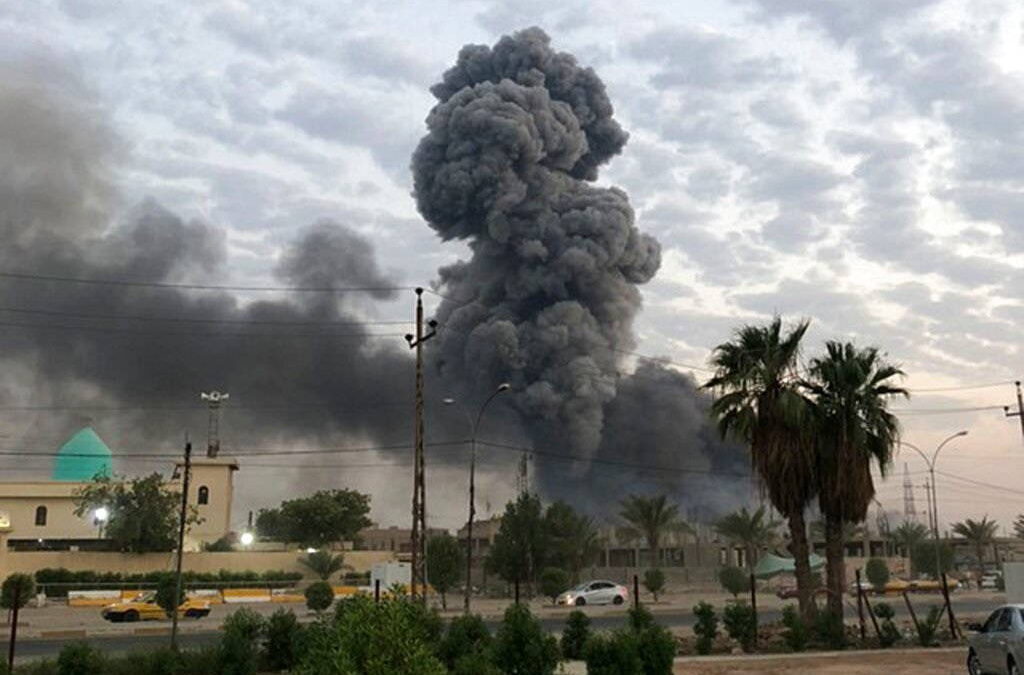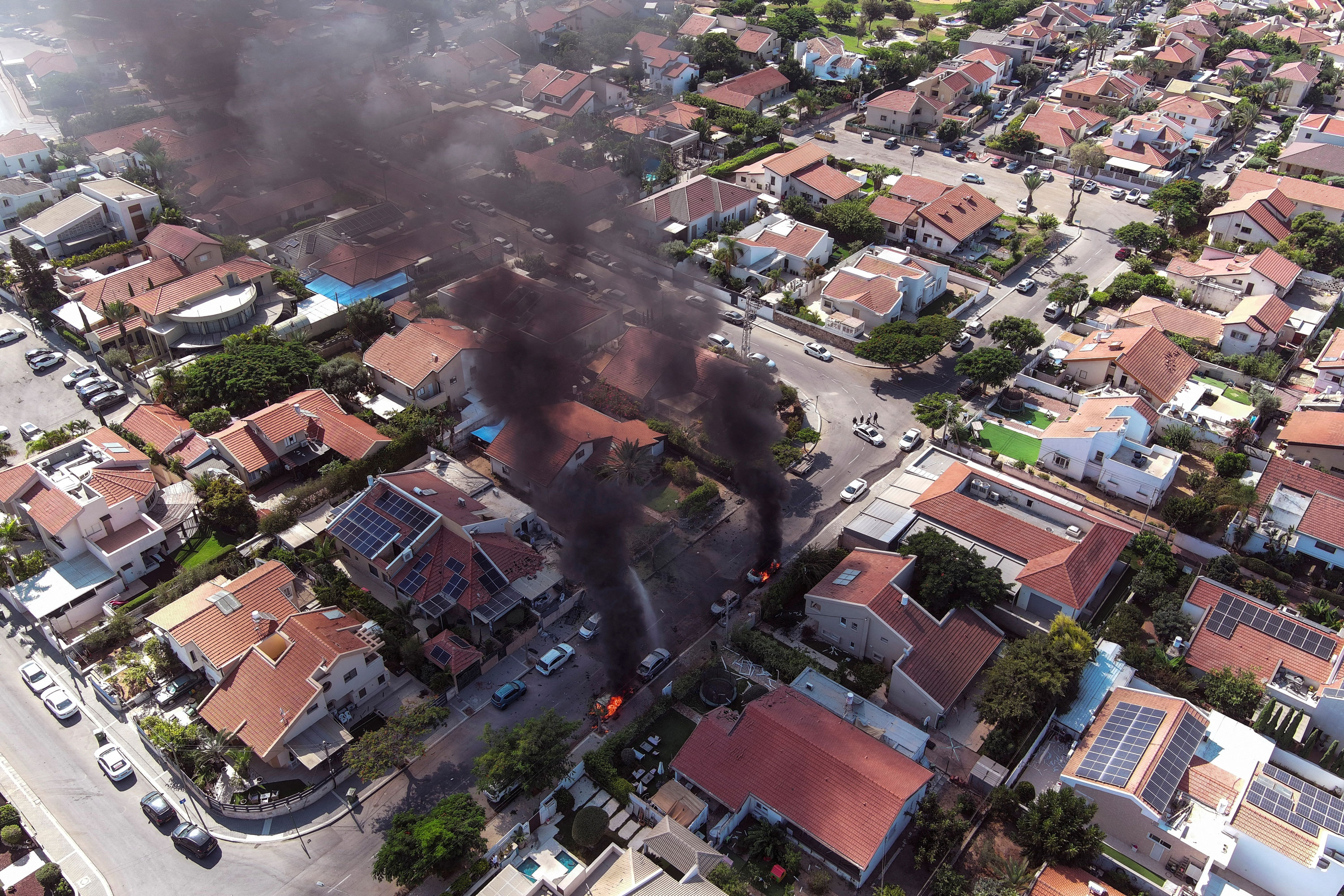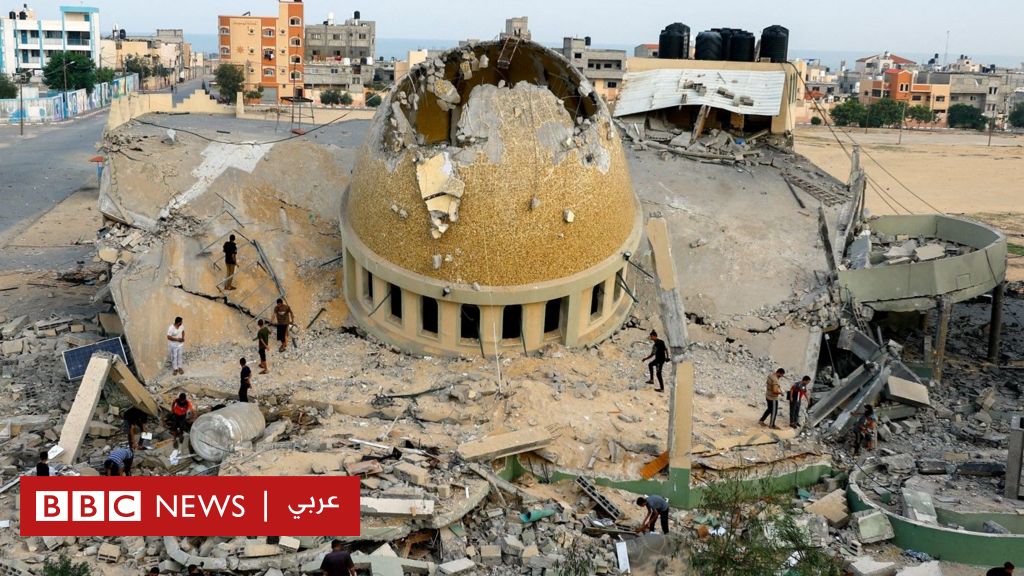Historical Context of Iran-Israel Relations

The relationship between Iran and Israel is a complex and multifaceted one, shaped by a long history of conflict and tension. The roots of this rivalry can be traced back to the establishment of the state of Israel in 1948, which was met with hostility by many Arab countries, including Iran.
Early Years of Conflict
The early years of the Iran-Israel conflict were marked by a series of events that further exacerbated tensions between the two countries. The 1956 Suez Crisis, in which Israel, France, and the United Kingdom invaded Egypt, contributed to the growing animosity between Iran and Israel. Iran, under the Shah’s leadership, supported Egypt during the crisis, further fueling tensions with Israel.
The 1979 Islamic Revolution and its Impact
The 1979 Islamic Revolution in Iran had a profound impact on the Iran-Israel relationship. The new Islamic Republic, led by Ayatollah Khomeini, adopted a staunchly anti-Israel stance, viewing the Jewish state as an illegitimate entity and a threat to the Islamic world. This shift in Iran’s foreign policy further escalated tensions between the two countries.
The Iran-Iraq War and its Implications
The Iran-Iraq War (1980-1988) had a significant impact on the Iran-Israel relationship. While both countries initially supported Iraq in the war, Israel eventually shifted its support to Iran, seeing Iraq as a greater threat. This change in support further complicated the relationship between Iran and Israel.
The Rise of Hezbollah and the Lebanon Conflict
The rise of Hezbollah in Lebanon, a militant group backed by Iran, further strained relations between Iran and Israel. Hezbollah’s involvement in the Lebanese Civil War and its subsequent attacks on Israel, including the 1982 Beirut massacre, deepened the conflict between the two countries.
The Nuclear Issue and its Role in the Conflict
The ongoing nuclear issue between Iran and the international community has further intensified tensions between Iran and Israel. Israel views Iran’s nuclear program as a grave threat to its national security, and has repeatedly threatened to take military action if necessary. Iran, on the other hand, insists that its nuclear program is for peaceful purposes and denies any intention to develop nuclear weapons.
Different Perspectives and Narratives
The Iran-Israel conflict is often viewed through different lenses, with both sides presenting their own narratives and perspectives. Iran views Israel as an illegitimate entity occupying Palestinian land and a threat to regional stability. Israel, on the other hand, sees Iran as a state sponsoring terrorism and seeking to destroy the Jewish state. These differing narratives contribute to the ongoing tension and mistrust between the two countries.
Recent Developments and Tensions

The relationship between Iran and Israel has been characterized by a long history of mistrust and hostility. In recent years, tensions have escalated dramatically, fueled by a complex interplay of factors including Iran’s nuclear program, regional conflicts, and proxy wars.
Recent Events and Incidents, Iran attack israel israeli
Recent events and incidents have significantly heightened tensions between Iran and Israel. These events include:
- The assassination of Iranian nuclear scientist Mohsen Fakhrizadeh in November 2020: This high-profile assassination, widely attributed to Israel, was a major escalation in the conflict. It further inflamed tensions and fueled Iranian calls for revenge. The event underscored the high stakes involved in the ongoing struggle between the two countries.
- The Israeli airstrikes on Iranian-linked targets in Syria: Israel has conducted numerous airstrikes in Syria, targeting Iranian military bases, weapons depots, and facilities suspected of supporting Hezbollah. These strikes have been a source of constant friction, with Iran accusing Israel of violating Syrian sovereignty. The strikes demonstrate Israel’s determination to prevent Iran from establishing a permanent military presence in Syria.
- The alleged Iranian plot to assassinate Israeli diplomats in Cyprus in 2022: This alleged plot, which was foiled by Cypriot authorities, further escalated tensions between the two countries. It highlighted the deep mistrust and suspicion that characterize the relationship and the lengths to which both sides are willing to go to undermine each other. This event serves as a stark reminder of the potential for violent conflict between Iran and Israel.
Military and Intelligence Operations
Both Iran and Israel have been engaged in a shadow war, conducting covert operations against each other. These operations include:
- Cyberattacks: Both countries have been accused of launching cyberattacks against each other’s infrastructure, including government websites, power grids, and military installations. These attacks have disrupted critical services and demonstrated the growing role of cyber warfare in the conflict.
- Assassinations and targeted killings: Both Iran and Israel have been involved in assassinations and targeted killings of individuals suspected of involvement in hostile activities. These operations have often been carried out outside of the two countries, highlighting the global reach of the conflict.
- Support for proxy groups: Both Iran and Israel have been accused of supporting proxy groups in the region, providing them with weapons, training, and funding. These proxy groups have been involved in numerous attacks and conflicts, exacerbating tensions and contributing to instability in the region.
Implications for Regional Stability and International Relations
The escalating tensions between Iran and Israel have significant implications for regional stability and international relations:
- Risk of escalation and unintended consequences: The ongoing conflict carries a real risk of escalation, potentially leading to a wider regional war. The use of advanced weapons, including ballistic missiles and drones, could result in significant casualties and damage. Moreover, the involvement of external powers, such as the United States and Russia, could further complicate the situation and increase the risk of unintended consequences.
- Impact on regional security: The conflict between Iran and Israel has a significant impact on regional security. The presence of Iranian-backed militias in countries like Lebanon, Syria, and Iraq has destabilized these countries and created a volatile environment. The conflict has also led to increased tensions between Israel and its Arab neighbors, undermining efforts to achieve regional peace.
- Challenges to international diplomacy: The conflict between Iran and Israel presents significant challenges to international diplomacy. The two countries have deep-seated grievances and a history of mistrust, making it difficult to find a common ground for dialogue. The conflict also complicates efforts to address other regional issues, such as the Israeli-Palestinian conflict and the fight against terrorism.
Regional and International Perspectives: Iran Attack Israel Israeli

The Iran-Israel conflict is not confined to the two nations involved. It has significant implications for the entire Middle East and beyond, drawing in regional actors, international organizations, and global powers with diverse interests and perspectives.
Regional Actors
The Middle East is a complex web of alliances and rivalries, with the Iran-Israel conflict often acting as a focal point.
- Saudi Arabia, a staunch US ally and a key player in the region, views Iran as its primary regional rival. Saudi Arabia supports Israel’s security concerns and has been actively working to counter Iran’s influence in the region. For example, the normalization of relations between Saudi Arabia and Israel, a move that would have been unimaginable just a few years ago, underscores the shared concerns about Iran’s ambitions in the region. This potential alliance, however, is still fraught with complexities and potential obstacles, including the Palestinian issue.
- The United Arab Emirates (UAE), another influential Gulf state, has also been moving closer to Israel in recent years. The UAE shares Saudi Arabia’s concerns about Iran’s regional ambitions and sees Israel as a potential partner in countering Iran’s influence. The UAE’s relationship with Israel has gone beyond security cooperation, encompassing trade, technology, and investment.
- Other Middle Eastern countries, such as Egypt, Jordan, and Turkey, also hold varying perspectives on the Iran-Israel conflict. Egypt, despite its peace treaty with Israel, has been wary of the potential for escalation in the region. Jordan, while maintaining close ties with Israel, has also been concerned about the potential for regional instability. Turkey, meanwhile, has been critical of Israel’s policies towards the Palestinians and has sought to cultivate closer ties with Iran.
International Organizations
International organizations play a crucial role in addressing conflicts and promoting peace.
- The United Nations (UN) has been involved in mediating the Iran-Israel conflict for decades. The UN Security Council has imposed sanctions on Iran over its nuclear program and has condemned acts of violence by both sides. The UN also plays a vital role in humanitarian assistance and peacekeeping in the region.
- The European Union (EU) has also been involved in the Iran-Israel conflict, particularly in the context of Iran’s nuclear program. The EU has imposed sanctions on Iran and has been working to promote a diplomatic solution to the conflict. The EU’s relationship with Israel is complex, balancing its commitment to the Palestinian cause with its strategic partnership with Israel. The EU has been vocal in its criticism of Israel’s settlement policies in the West Bank.
World Powers
The Iran-Israel conflict has also drawn in global powers with their own interests and strategies.
- The United States has been a strong supporter of Israel and has played a key role in mediating the conflict. The US has provided Israel with significant military and financial assistance and has been a vocal critic of Iran’s nuclear program and its support for regional militant groups. The US’s relationship with Iran has been marked by periods of tension and engagement. The US has imposed sanctions on Iran and has threatened military action, but it has also engaged in diplomatic efforts to reach a nuclear deal.
- Russia, a long-standing ally of Syria and Iran, has a complex relationship with Israel. Russia has been involved in mediating the conflict in Syria, where Israel has conducted airstrikes against Iranian-backed forces. Russia has also been selling advanced weapons to Iran, raising concerns in Israel about Iran’s military capabilities. Russia’s involvement in the conflict is primarily driven by its strategic interests in the region and its desire to maintain its influence in the Middle East.
- China, a rising global power with growing economic and political influence in the region, has been seeking to strengthen its ties with both Iran and Israel. China has been investing heavily in infrastructure projects in Iran and has been a major buyer of Iranian oil. China has also been building closer ties with Israel, engaging in trade and technology cooperation. China’s approach to the Iran-Israel conflict is primarily driven by its economic interests and its desire to maintain good relations with both countries.
Iran attack israel israeli – The complexities of the relationship between Iran and Israel are a constant source of global concern. Understanding the current political landscape and societal dynamics within Iran is crucial for navigating this complex situation. For insights into the current events, politics, and society within Iran, you can explore news iran.
By staying informed, we can hope for a future where dialogue and understanding prevail over conflict and mistrust, paving the way for a more peaceful relationship between Iran and Israel.
The conflict between Iran and Israel is a complex and sensitive issue, one that requires understanding and compassion from all sides. Sometimes, stepping back and finding moments of peace can be helpful. Perhaps a simple act like enjoying a McDonald’s meal with a friend can remind us of the shared humanity that binds us, even amidst political disagreements.
It’s important to remember that finding common ground and fostering understanding are crucial steps toward a peaceful future.
